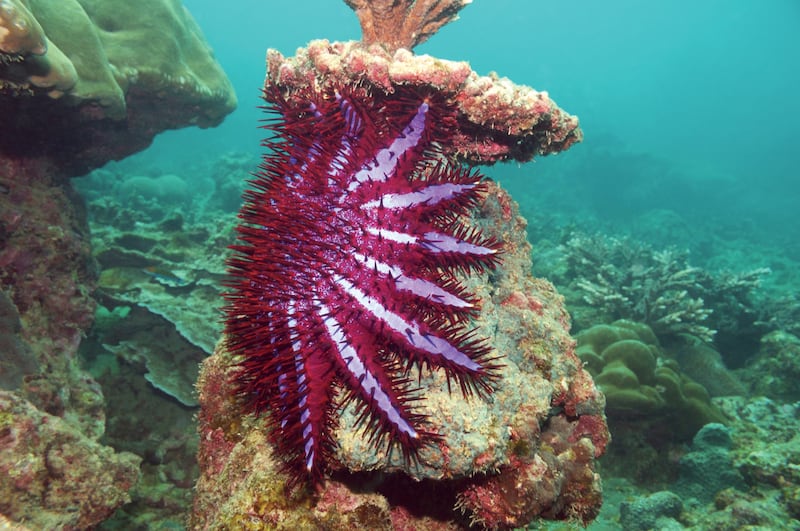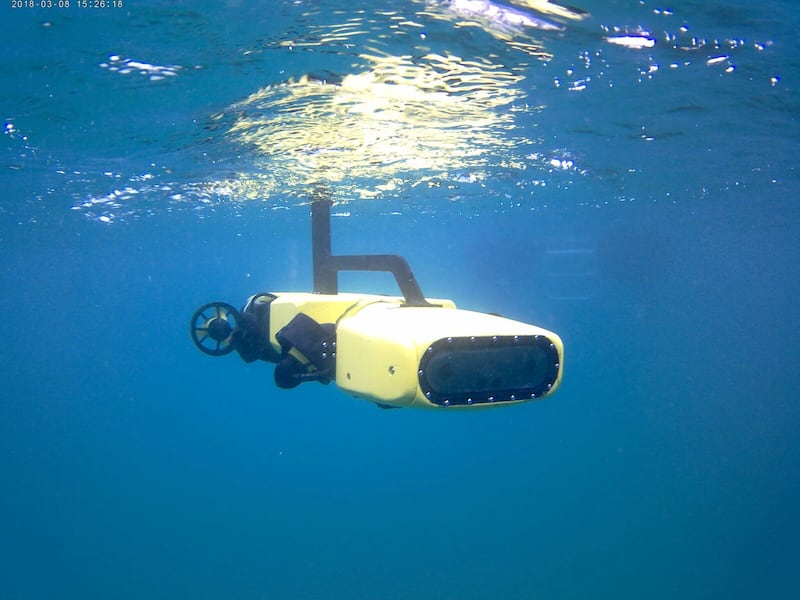Robot drones are set to be tested underwater to protect the Great Barrier Reef from crown-of-thorns starfish.
The autonomous RangerBot is able to spot the coral-eating starfish with 99.4% accuracy and kill them using a fatal injection.

Researchers at Queensland University of Technology have been working with Google and the Great Barrier Reef Foundation on the technology for around two years, in a bid to monitor a range of issues facing coral reefs including coral bleaching, water quality, pest species and pollution.
“RangerBot is the world’s first underwater robotic system designed specifically for coral reef environments, using only robot-vision for real-time navigation, obstacle avoidance and complex science missions,” said Professor Dunbabin.
Check out #QUT’s world-first #RangerBot in action on the #GreatBarrierReef. It’s a high-tech, low-cost #drone that can ‘see’ underwater – and it’s on a very important mission. @QUTSciEng @IFE_QUT @GBRFoundation pic.twitter.com/PXrAZyAsct
— QUT (@QUT) August 30, 2018
“We’ve ‘trained’ RangerBot to detect crown-of-thorns starfish – and only these coral-destroying starfish – in much the same way as people learn to differentiate between various forms of sea life.”
The drone is not only autonomous, but can also stay underwater almost three times longer than a human diver, as well as operating at any time of day and under any conditions.

“More than a billion people depend on coral reefs for their food and livelihood – they stand to lose the most if those important ecosystems are not protected,” explained Anna Marsden, managing director of the Great Barrier Reef Foundation.
“This project and partnership with QUT and Google is about putting these cost-effective, flexible and readily deployable ‘drones of the sea’ into the hands of the people at the front line of looking after and managing our coral reefs, as extra ‘hands and eyes’ to manage those critical environments.”








